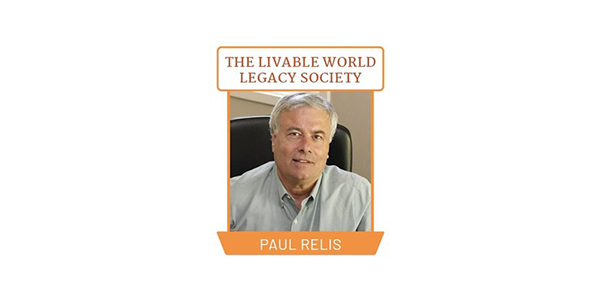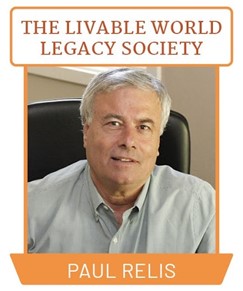Paul Relis: A Pioneer for All Seasons


Paul Relis, the founder of Community Environmental Council, has been instrumental to the organization's growth and evolution over the past 50 years. Paul was born in San Pedro, California, while his family served in the Merchant Marine during World War II. They lived in military housing in Lomita overlooking the giant Wilmington oil refinery complex. After the war the family moved to Long Beach and bought a home in the Naples enclave.
After graduating from Long Beach Wilson High School, Paul followed his brother to University of California, Santa Barbara (UCSB). While attending UCSB, he witnessed the infamous Santa Barbara Oil Spill of 1969. The enormity of the spill had a great impact on him, pulling him into environmental activism. Following his graduation from UCSB, Paul became the executive director of Community Environmental Council (CEC) in 1970, later joined by co-director, Hal Conklin.
Under Paul and Hal's leadership, CEC quickly became a trailblazer in the environmental arena. This innovative team was both prolific and dynamic, full of creative and progressive ideas. They brought leading environmentalists to Santa Barbara, including Buckminster Fuller and E.F. Schumacher, commissioned studies, issued white papers, and incubated practical solutions to identified problems. Numerous pioneering community programs—including community gardening, toxic waste management, recycling, and green building—were born from this organizational laboratory. CEC built its position as a leader in renewable energy and climate change action based on these foundational years.
After his 20-year tenure as leader of CEC, Paul was appointed by then Governor Pete Wilson to the California Integrated Waste Management Board, a new regulatory body created by the 1989 California Integrated Waste Management Act. As an executive in the California Environmental Protection Agency—a position he held for seven years—Paul played a key role in developing new policies and regulations to improve environmental management and to reduce California's dependency on landfills. At the time he assumed office, the state sent more than 90% of its waste to landfills. Massive public investments in recycling and composting reduced this to about 50% by the end of his tenure in 1998. Paul's environmental leadership was noticed internationally and he was invited by the State Department as a U.S. Information Service speaker to Germany and China.
Following his government service, Paul joined CR&R Waste and Recycling Services, one of the largest privately held waste management companies in the U.S. He led the company's efforts to find alternatives to landfills, as well to address problems such as foul odors emanating from waste and materials processing facilities. He traveled worldwide in search of technologies to advance the company's ability to recycle waste but was unsatisfied with his findings. Consequently, the company developed the world's largest anaerobic digester system, designed to convert municipal organic waste to biogas, a zero-carbon fuel. This was then used to power a portion of its truck fleet, while generating high quality compost as a byproduct. This $100 million facility, named in honor of Paul's pioneering efforts, is located in Riverside County.
In addition, Paul was a lecturer in UCSB's Environmental Studies department for 16 years and was honored with its Environmental Leadership Award. He was named by the Santa Barbara Independent as an “Environmental Visionary'' in 1990; served as Chair of the California Bioenergy Association; and was a Trustee of the Santa Barbara Museum of Natural History. Paul is also author of the much acclaimed book, Out of the Wasteland: Stories From the Environmental Frontier, published in 2015.
Paul and his partner, Fanny Pearce, who is an accomplished novelist, currently live in Santa Fe, New Mexico, where he is working on a novel focused on the environment. Demonstrating his continued great devotion to CEC and its mission, Paul has designated a percentage of his estate as a legacy gift to CEC.



